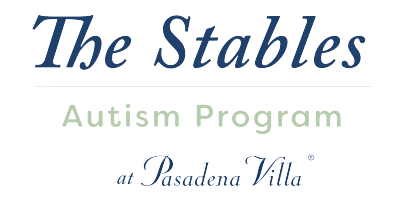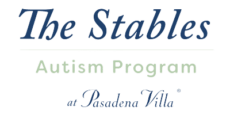The bonds that form between human beings and animals are unlike any others. Animals have a unique ability to connect with humans in a way no other person can. Whether it’s playing with a dog, petting a horse, or playing with dolphins, animals have a therapeutic impact on human beings. Clinicians are taking advantage of this therapeutic influence within the treatment setting. Animal Assisted Therapy is a growing profession full of amazing potential for those who need help.
Using Animal Assisted Therapy to work with individuals who have autism spectrum disorder is a practice that’s revealed a range of positive effects. How does this therapy benefit those with autism and what are some of the treatment options available?
The Benefits of Animal Assisted Therapy for Autism
Autism spectrum disorder (ASD) is a developmental disorder that consists of a range of difficulties in communication skills, speech, fine or gross motor skills, and intellectual ability. ASD covers a wide scope of symptoms that range in both severity and type.
One of the key aspects of autism is difficulty with social interaction. Many people have troubles in social settings and struggle in their interactions with others. Animal Assisted Therapy for autism offers recognizable benefits in terms of social behaviors.
Individuals on the spectrum show a noticeable increase in positive behaviors when accompanied by an animal. Alongside an animal, they tend to smile, laugh, talk, and participate more. Animals serve as a conversation starter and bridge between them and the people they interact with.
Another great benefit of Animal Assisted Therapy for autism is the calming effects that animals have. Interacting with an animal can relieve stress during situations that might normally cause the individual to become angry or frustrated.
Clinicians have noted many other positive effects, which include increased self-confidence, reduced feelings of loneliness, and increased physical fitness, strength, and coordination.
Animal Assisted Therapy Options
Animal Assisted Therapy encompasses many different options. There is no one-size-fits-all approach. It’s adaptable to each individual and their specific preferences and situations. The flexibility makes it a great addition to any existing treatment programs.
Service Animals
Service animals receive professional training and are certified to meet an individual’s specific needs. These animals can be trained to handle a variety of situations such as excessive aggression, emotional frustrations, or self-harm. Service animals are legally allowed to go wherever their owners go, offering individuals with autism a trusted companion. They may accompany their owners during any errands, events, or activities they participate in.
Emotional Support Animals
Emotional support animals are certified by a psychologist or other type of mental health professional. They provide mental and emotional support and are considered essential to their owner’s emotional well-being. Emotional support animals do not receive any professional training, though, and are not always allowed in all public spaces. Some animals may be permitted in specific spaces like schools or hospitals or allowed to travel with their owner.
Therapy Animals
Therapy animals are incorporated into an occupational therapy session or setting. The individual receiving treatment does not own the animal but visits with them during their session. These animals help keep individuals calm and encourage emotional and intellectual openness with the therapist or clinician overseeing the session. Therapy animals are most often used in professional healthcare settings like hospitals or counseling facilities and do not go home with the person afterward.
Hippotherapy
Hippotherapy, also known as equine or equestrian therapy, involves the caring for and riding of horses in a therapeutic setting. This form of animal therapy has been studied more than any other type. It supports both emotional and physical wellbeing as the individual connects with the horse on a psychological level as well as a physical level. The benefits of hippotherapy are well documented and widely acknowledged.
Family Pets
Family pets are not technically therapy animals but still provide many of the same benefits as Animal Assisted Therapy. These animals provide unconditional companionship and affection without requiring any sort of conversation or social connection. Caring for a family pet encourages the development of many different mental and physical skills, responsibility, and empathy. It also gets individuals with autism out for physical exercise when playing with their pets.
Animal Assisted Therapy at The Stables Autism Program
The Stables is located on 25-acres of beautiful farmland, residents can interact with a wide range of therapy animals. Our certified and trained staff utilize evidence-based modalities combined with Pasadena Villa’s Social Integration Model™ to provide a structured environment that ensures an atmosphere for developing the tools needed for success after treatment. Learn more from our Certified Therapeutic Recreation Specialist, Cathie Haviland, MS, CTRS below.
Are you looking for more information? We would be happy to walk you through the various options available to you and your loved one. Call us or fill out an online form to connect with one of our admissions specialists today!


 Call
Call